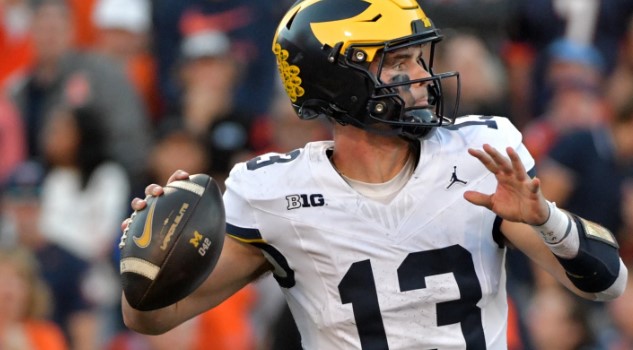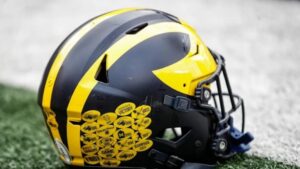
Michigan quarterback Jack Tuttle has decided to retire from football after sustaining his fifth concussion, a difficult conclusion that prioritizes his long-term health over continuing his college football career. Tuttle announced the decision through social media, expressing that while his passion for football remains, the cumulative effects of multiple injuries — especially concussions — have forced him to consider his future more cautiously. In his statement, Tuttle explained how an earlier injury involving ligament damage to his throwing elbow had hindered his performance and left him constantly in recovery mode. This ongoing struggle with injuries, punctuated by his recent concussion, ultimately led him to the painful realization that stepping away from the game was necessary.
After transferring to Michigan in 2023, Tuttle initially signed with Utah out of high school and later transferred to Indiana, where he spent four seasons. Tuttle’s career spans multiple programs and includes various game highlights and challenges. This season, he made his debut in Week 6 against Washington and started in Michigan’s game against Illinois, where he completed 20 of 32 pass attempts for 208 yards, with one interception in a 21-7 loss. Michigan eventually returned to Davis Warren, who was the team’s Week 1 starter, in their recent win over Michigan State.
Despite the ups and downs of his career, Tuttle reflected on the positive impact football has had on him. He spoke about the memories created, the character-building aspects of the game, and the camaraderie with teammates and coaches. Tuttle expressed immense gratitude for the experiences football gave him and the unwavering support from those around him through both victories and setbacks.
As he now steps away from the field, Tuttle looks forward to his next chapter in football, with aspirations to pursue a career in coaching. He aims to apply his experiences and knowledge of the game in a new way, passing on the lessons he learned through his journey in college football. Tuttle’s retirement highlights the complexities athletes face in balancing health and their love for the sport, especially as awareness of concussions and long-term injuries continues to grow. His story resonates with the importance of health in an athlete’s career trajectory and emphasizes the challenging decisions many face in pursuit of personal well-being.







